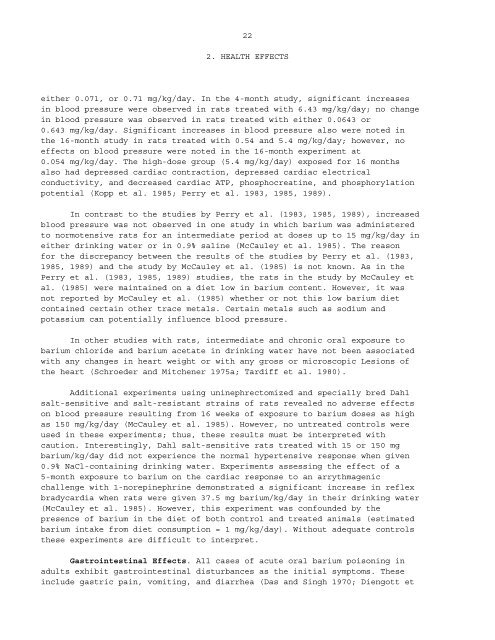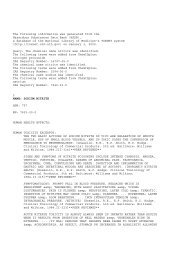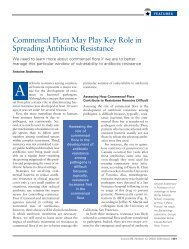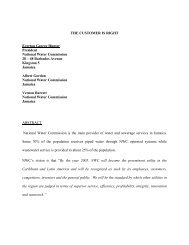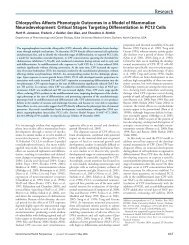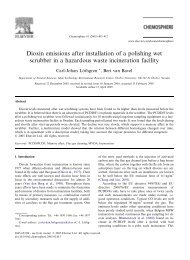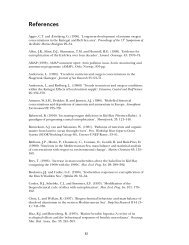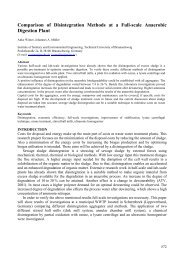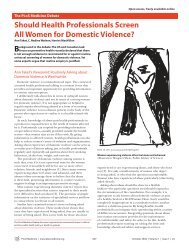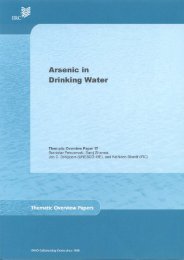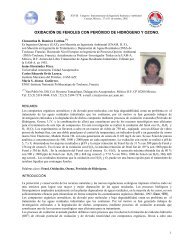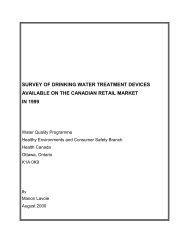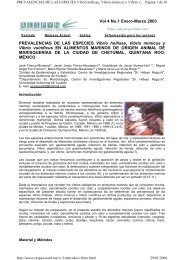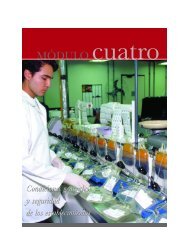TOXICOLOGICAL PROFILE FOR BARIUM AND COMPOUNDS ...
TOXICOLOGICAL PROFILE FOR BARIUM AND COMPOUNDS ...
TOXICOLOGICAL PROFILE FOR BARIUM AND COMPOUNDS ...
Create successful ePaper yourself
Turn your PDF publications into a flip-book with our unique Google optimized e-Paper software.
22<br />
2. HEALTH EFFECTS<br />
either 0.071, or 0.71 mg/kg/day. In the 4-month study, significant increases<br />
in blood pressure were observed in rats treated with 6.43 mg/kg/day; no change<br />
in blood pressure was observed in rats treated with either 0.0643 or<br />
0.643 mg/kg/day. Significant increases in blood pressure also were noted in<br />
the 16-month study in rats treated with 0.54 and 5.4 mg/kg/day; however, no<br />
effects on blood pressure were noted in the 16-month experiment at<br />
0.054 mg/kg/day. The high-dose group (5.4 mg/kg/day) exposed for 16 months<br />
also had depressed cardiac contraction, depressed cardiac electrical<br />
conductivity, and decreased cardiac ATP, phosphocreatine, and phosphorylation<br />
potential (Kopp et al. 1985; Perry et al. 1983, 1985, 1989).<br />
In contrast to the studies by Perry et al. (1983, 1985, 1989), increased<br />
blood pressure was not observed in one study in which barium was administered<br />
to normotensive rats for an intermediate period at doses up to 15 mg/kg/day in<br />
either drinking water or in 0.9% saline (McCauley et al. 1985). The reason<br />
for the discrepancy between the results of the studies by Perry et al. (1983,<br />
1985, 1989) and the study by McCauley et al. (1985) is not known. As in the<br />
Perry et al. (1983, 1985, 1989) studies, the rats in the study by McCauley et<br />
al. (1985) were maintained on a diet low in barium content. However, it was<br />
not reported by McCauley et al. (1985) whether or not this low barium diet<br />
contained certain other trace metals. Certain metals such as sodium and<br />
potassium can potentially influence blood pressure.<br />
In other studies with rats, intermediate and chronic oral exposure to<br />
barium chloride and barium acetate in drinking water have not been associated<br />
with any changes in heart weight or with any gross or microscopic Lesions of<br />
the heart (Schroeder and Mitchener 1975a; Tardiff et al. 1980).<br />
Additional experiments using uninephrectomized and specially bred Dahl<br />
salt-sensitive and salt-resistant strains of rats revealed no adverse effects<br />
on blood pressure resulting from 16 weeks of exposure to barium doses as high<br />
as 150 mg/kg/day (McCauley et al. 1985). However, no untreated controls were<br />
used in these experiments; thus, these results must be interpreted with<br />
caution. Interestingly, Dahl salt-sensitive rats treated with 15 or 150 mg<br />
barium/kg/day did not experience the normal hypertensive response when given<br />
0.9% NaCl-containing drinking water. Experiments assessing the effect of a<br />
5-month exposure to barium on the cardiac response to an arrythmagenic<br />
challenge with 1-norepinephrine demonstrated a significant increase in reflex<br />
bradycardia when rats were given 37.5 mg barium/kg/day in their drinking water<br />
(McCauley et al. 1985). However, this experiment was confounded by the<br />
presence of barium in the diet of both control and treated animals (estimated<br />
barium intake from diet consumption = 1 mg/kg/day). Without adequate controls<br />
these experiments are difficult to interpret.<br />
Gastrointestinal Effects. All cases of acute oral barium poisoning in<br />
adults exhibit gastrointestinal disturbances as the initial symptoms. These<br />
include gastric pain, vomiting, and diarrhea (Das and Singh 1970; Diengott et


